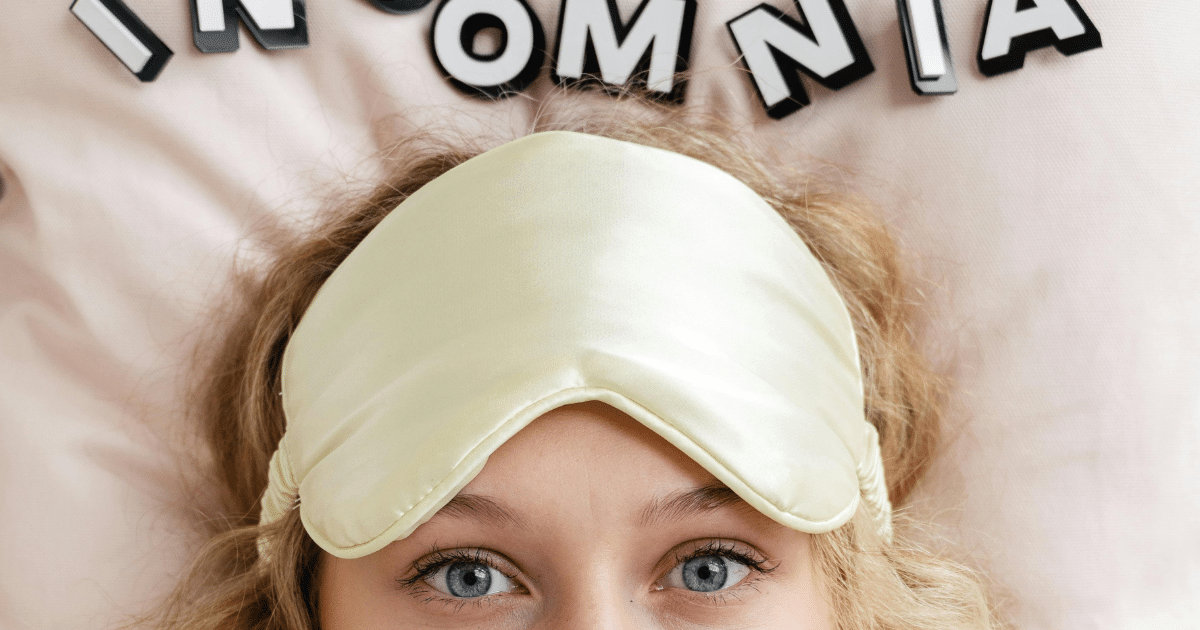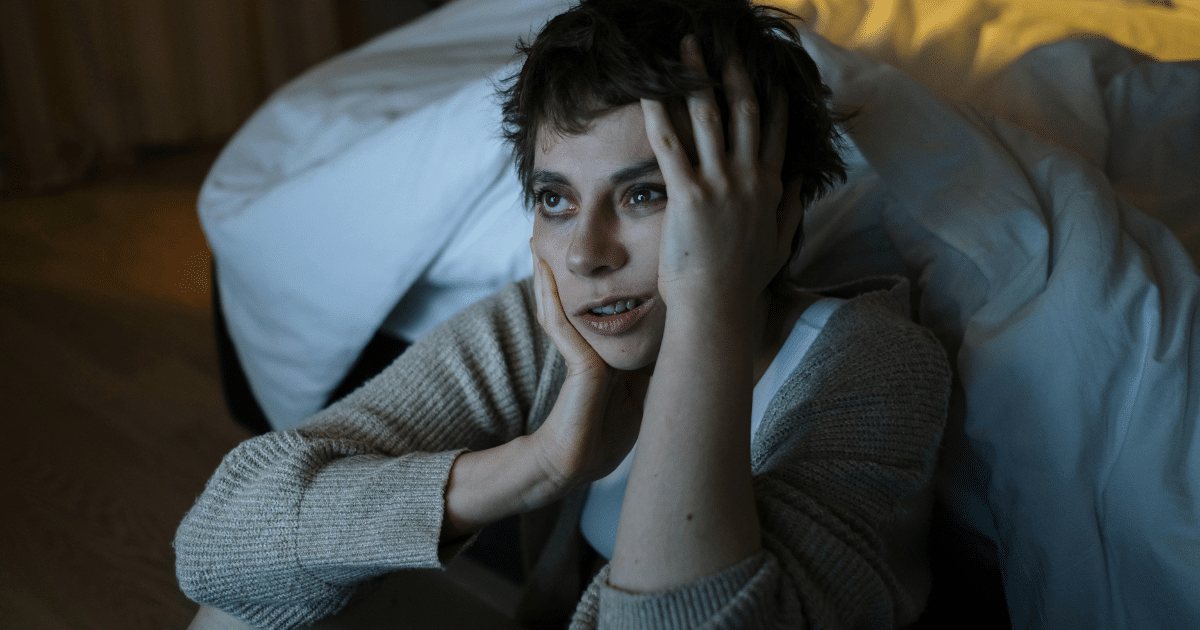Millions of individuals worldwide have clinically diagnosed sleep issues, with complaints of lack of sleep or excessive drowsiness. The prevalence of this condition varies depending on the population and is higher in the older generation.
Hypersomnia and insomnia are among the most common sleep disorders. And they have profound effects on mood and productivity.
Over the years, insomnia has become the face of sleep disorders. But hypersomnia may seem unfamiliar to many. Indeed, both conditions differ, but they potentially pose the same health risks. So, understanding the natures of hypersomnia and insomnia is crucial in seeking appropriate medical treatment.
In this article, we’ve discussed the clear differences between hypersomnia vs insomnia. Moving on, we’ve also highlighted strategies for coping with both disorders.
What Are Hypersomnia and Insomnia?
Hypersomnia means excessive sleepiness. People with this condition feel unusually sleepy during the day, despite sleeping all through the night. Hypersomnia is a medical diagnosis with features of lack of alertness during the day.
With insomnia, you can’t fall asleep or stay asleep, even upon exhaustion. It’s one of the sleep disorders that greatly contribute to poor sleep quality.
People have different sleep patterns, so insomnia varies for individuals. The lasting duration forms the basis for classifying insomnia into acute and chronic.
| Features | Acute insomnia | Chronic Insomnia |
| Duration | A few days or weeks. | Lasts for three months or more. |
| Stressors | It’s triggered by work, family, or life events. | Underlying medical conditions, psychological disorders, or behavioral factors. |
| Symptoms | Symptoms include difficulty sleeping and staying asleep, or waking too early. | Manifestations are similar to acute insomnia except they’re more persistent. |
| Effects | Effects can be relatively mild. | The aftermath can be more severe on health and daily life. |
Symptoms and Causes of Hypersomnia
The risk factors for hypersomnia can be medical conditions or lifestyle-related.
- Obstructive Sleep Apnea affects breathing during sleep. This incessant nighttime sleep disruption compounds to daytime sleepiness.
- Other disorders like narcolepsy, a neurological condition that affects the brain’s ability to regulate sleep, cause daytime slumber.
- Lifestyle factors, such as work that leads to chronic sleep deprivation, are contributors to hypersomnia. A poor sleep habit keeps adding up to frequent daytime drowsiness.
- Even substances like alcohol or sleep meds can throw off your body clock.
Symptoms of Hypersomnia
- Excessive daytime sleepiness
- Extended sleep periods
- Constant feeling of fatigue
- Reduced stamina
- Memory issues
- Restlessness
- Feeling of worry or uneasiness
- Drowsy feeling despite prior adequate rest
Symptoms and Causes of Insomnia
Sometimes, you may think it’s insomnia, but it’s just stress, health issues, or the aftermath of some poor habits.

- Worrying about work, school, and life can keep your mind wandering at night, making it difficult to sleep.
- Ineffective sleep routines and substance abuse are also notable causes.
- With medical conditions like burns, infections, you can hamper sleep.
- For some people, their genetics predispose them more to insomnia.
- From numerous studies, anxiety and depression can also play a major role in sleep trouble.
Symptoms of Insomnia
- Inability to initiate sleep
- Short sleep duration
- Waking up at night
- Getting up too early
- Tiredness or sleepiness during the day
- Feeling anxious or depressed
- Concentration issues
Effects of Hypersomnia on Daily Life
Hypersomnia can seriously affect everything from your job to your relationships. The struggle impacts concentration, memory, and alertness. Therefore, it affects performance and increases the risks of accidents.
Other effects include anxiety, irritability, and mood changes. Due to immobility, hypersomnia can also cause other medical conditions originating from reduced muscle strength and lung capacity.
Sometimes, depression may develop, like in insomnia. Cases of incessant headaches, dizziness, and cold extremities have also been recorded.
| Short-Term Effects of Hypersomnia | Long-Term Effects of Hypersomnia |
| Fatigue | Work and school impairment |
| Difficulty concentrating | Increased risk of mental health issues |
| Irritability | Social isolation |
| Decreased energy levels | Relationship challenges |
| Mood changes | Potential accidents and injuries |
How Insomnia Affects Relationships
The effects of a lack of sleep on relationships aren’t subtle. From decreased emotional connection, communication deficits, to brewing conflicts, you risk truncating important bonds.
When you haven’t slept in a while, it’s hard to connect with your partner emotionally. You might be perceived as withdrawn and less likely to share your vulnerabilities. Without intervention, intimacy gradually fades off. As a consequence, this makes it difficult for a sleep-deprived individual to feel close and supported.
The constant irritable state from lack of sleep also increases conflict. This may explain why you react harshly to situations that normally wouldn’t bother you. The heightened stress levels also make it difficult to cope with relationship challenges.
Strategies for Managing Sleep Disorders
The remedies for sleep issues are multifaceted. And their effectiveness may vary depending on individuals. However, certain strategies are proven and are crucial starting points.
| Strategies | Description |
| Adjust your lifestyle | To avoid interfering with night sleep, have minimal daytime naps. Consider limiting your caffeine use, practice relaxation, exercise regularly, and prioritize a balanced diet. |
| Be more intentional about sleep | Practice good sleep hygiene by having a regular bedtime schedule. This helps to set your body’s circadian rhythm. In addition, ensure your bedroom is comfortable and devoid of unpleasant sounds. |
| Consider standard techniques | Cognitive behavioral therapy can address thoughts and actions contributing to sleeplessness. The use of medications and light therapy are also helpful. |
Coping With Hypersomnia
Hypersomnia isn’t your fault, but it can make daily life harder. To help adjust, these are some coping suggestions.
- Make sleep a priority. With hypersomnia, you may not feel awake even when you sleep a lot. Yet, you still need to prioritize a good night’s rest. Otherwise, not getting enough sleep would hit you harder than someone without your condition.
- Get help at your workplace or school. If you have hypersomnia, chances are the alarm clock wouldn’t suffice to wake you up for work in the mornings. For a flexible arrival time, you can speak to your boss about your condition. The same goes for school. Let your child’s teacher know what is going on. That way, they can offer extra support if your child seems drowsy or distracted.
- Educate others. Most often, people may not be aware of your condition. Your perpetual drowsiness may also attract some prejudiced treatment. It would help to shed some light on your symptoms to explain how your grogginess isn’t under your control.
Coping With Insomnia
Introducing some self-care routines into your practices is the best bet at alleviating insomnia symptoms.
- Limit your screen time. The light emitted by your devices can suppress melatonin production. This inherently affects your sleep-wake cycle. A good remedy for this is turning off all screens at least an hour before bedtime.
- Keep anxiety and stress under control. Adopting practicable strategies for stress management will transform your sleep quality. Activities like yoga, journaling, and regular exercise are helpful.
- Consider the use of soothing music. If you find it difficult to sleep, ambient sounds can help create a serene environment conducive to sleep.
- Avoid heavy meals before bed. Skip big meals late at night as they can cause your body to be too busy to relax. Light snacks and adequate hydration are better advised.
When to Seek Professional Help
When hypersomnia or insomnia starts to affect daily life, it’s getting serious! Don’t wait till symptoms last for weeks, or your performance at work starts taking a downward turn. Go find a specialist to confide in.
Again, since sleep and mental health are connected, you may benefit from a therapist, too. Sleep experts or your primary healthcare physician can also be your first contact.
Get Help at Silicon Valley Recovery
Do you feel your irregular sleep pattern is related to some mental health concerns? Silicon Valley Recovery specializes in sleep problems, with experts ready to listen.
If you’re struggling with sleep, don’t shrug it off! Come where help is. Contact Silicon Valley Recovery to talk to someone who understands.

FAQs
What are the key differences between hypersomnia and chronic insomnia as sleep disorders?
Hypersomnia and chronic insomnia are opposite terms. The former makes you remain drowsy even after an adequate night’s rest. But chronic insomnia keeps you from getting the rest in the first place and lasts for about three months.
How can excessive sleepiness impact daily life compared to the effects of sleep deprivation on sleep quality?
Frequent drowsiness impacts crucial aspects of your daily life, like your work and relationships. By disrupting your normal biological clock and reducing restorative sleep, sleep deprivation affects your sleep quality.
Can sleep apnea contribute to hypersomnia, and how does it differ from its effects on chronic insomnia?
Sleep apnea can cause both hypersomnia and insomnia. Interestingly, one may lead to the other. It can disrupt your sleep so much causing you to feel too tired or unable to sleep at all.
What role does circadian rhythm play in managing hypersomnia versus insomnia?
Circadian rhythm can explain excess or absent sleep. In hypersomnia, you need to address the altered biological clock. But for insomnia, it’s more important to synchronize the internal sleep clock with the environment.
How do narcolepsy symptoms overlap with hypersomnia and insomnia, and what differentiates them?
Narcolepsy, hypersomnia, and insomnia account for sleep inappropriateness. They all cause excessive daytime sleepiness. But narcolepsy includes sleep attacks (cataplexy), sleep paralysis, and hallucinations.